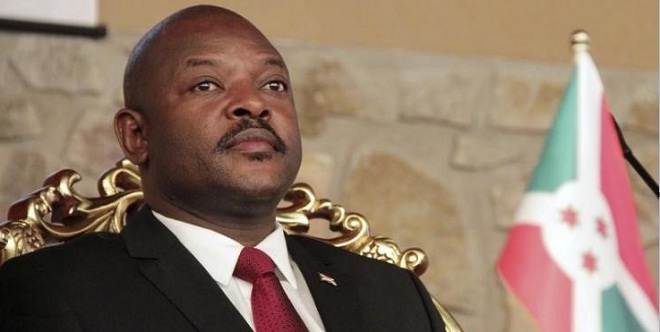
Why it would be a miracle if the recent round of talks yielded the inclusive, sustainable peace the country needs
COMMENT | CARINE N. KANEZA | Burundi has been gripped by unrest since April 2015; triggered by President Pierre Nkurunziza’s pursuit of a third term. The crisis has led to protests, a failed coup attempt, mass atrocities, including enforced disappearances and killings of a daily basis.
Mass graves have been exposed and close to half a million Burundians are refugees. Several rounds of peace talks have been held to try to end the crisis. The latest; the Fourth Round of the East African Community (EAC)-led Burundi Peace Talks that took place in Arusha, Tanzania from Nov. 27 to Dec. 08 ended without consensus and no agreement signed.
The talks took place despite a comprehensive boycott by the exiled opposition and a coalition of civil society groups. The mediator invited around a hundred delegates; a significant number of them from the government side. The delegates from the opposition were invited on an individual basis as opposed to their capacities as negotiators of recognised components. This was contrary to standard practice in mediation where representatives of parties to a dispute as well as critical stakeholders are invited and they select their negotiating teams.
The 1996 – 2000 Arusha Peace Talks on Burundi, for example, had: the Government of Burundi, National Assembly as constituted in 1996, and political parties. When President Nelson Mandela took over the mediation after President Julius Nyerere’s death, he created a multi-track mechanism to engage youth, women, political prisoners, refugees, and internally displaced persons alongside the formal negotiations.
These lessons were not applied in the recent talks as the mediation team appeared to be at pains not to offend the Burundi government by inviting components that it objects to. To highlight this problem, some background is necessary.
During the opening talks in Entebbe, Uganda, in December 2015, the Burundi government labelled all its opponents as “coup plotters” and even issued warrants for their arrest. The follow-up session, scheduled to take place in February in Arusha, Tanzania aborted after the government refused to send representatives, citing the presence of individuals it objected to (this writer included).
Talks resumed in July 2016 but broke down after the government walked out protesting the presence of participants it accused of trying to overthrow it. Former Tanzanian President Benjamin Mkapa then travelled to Belgium to meet the exiled opposition; a move that was promptly criticised by the Burundi government, which maintained it would not “negotiate with coup plotters.”
The mediation team subsequently resigned itself to dealing with opposition forces as individuals. But that did not change the government’s behavior. Indeed, at the start of the Third Round of talks in May 2017, the Burundi government asked the Tanzanian authorities to arrest assembled opposition delegates.
Mkapa, in frustration, told EAC leaders that “there is an impasse because the Government of Burundi is reluctant to talk to its opponents…it is picking friendly stakeholders to talk to, while ignoring the others.”
He then outlined a series of confidence-building measures; including the lifting of warrants, return of exiles, release of political prisoners, creating a conducive environment for the return of refugees, and opening of political space-none of which have been done.
Since the First Round of talks in Entebbe, the mediation team has bent over backwards in soliciting the Burundi government’s participation to no avail. The mediation team’s perceived biases have not helped matters. Mkapa’s December 2016 visit to Bujumbura is but one example. He said at a press conference that opposition forces were “foolish” and “wasting time” in challenging President Nkurunziza’s legitimacy. What mattered was creating an “enabling environment for the 2020 elections.” Such placation brings the EAC’s credibility into question.
It also delivers a message that the government’s intransigence will be tolerated; thereby further undermining the peace process. Given these sets of circumstances it would have been miracle if the latest round of talks had yielded the inclusive peace that Burundians have been waiting for.
The other issue that deserves scrutiny is EAC’s strategic intent as the sponsor of the talks. Peace processes do not occur in a vacuum; they are highly political affairs and their management is always guided by an overriding strategic vision. The 2000 Arusha Peace Talks were underpinned by two strategic considerations; first, the crisis directly impacted the national security of Burundi’s immediate neighbours; second, the structure of the then Burundi government and the way power was exercised was a major part of the problem. In other words, the Burundi government represented a direct threat to the region’s security.
To address this, the Regional Initiative on Burundi, chaired by Uganda, was created to reinforce Mandela’s mediation effort. It met in regular summits that brought together Burundi’s neighbours (Rwanda, Tanzania and Democratic Republic of Congo), as well as Ethiopia, Mozambique, and South Africa. A joint committee of intelligence professionals from Uganda, Tanzania and South Africa coordinated security matters for the Initiative while a bevy of regional diplomats maintained regular contact with the parties to bring their influence to bear in complementing the mediation.
Mandela’s team, and the Regional Initiative, shared a common perspective that the reconfiguration of political power in Burundi was essential to resolve the conflict and create a stable peace. The talks were, therefore, structured to negotiate radical constitutional and institutional reforms on the nature of the conflict, problems of genocide and exclusion, democracy and good governance, peace and security reconstruction and development and implementation. The new governance structure that emerged at the end of four years of serious negotiations effectively dismantled the Burundi government, making a clean break with exclusionary governance arrangements since independence. Enforcement measures were established to ensure that the parties lived up to their commitments.
By contrast, maintaining the status quo appears to be the strategic intent driving the current talks. Judging from the record of behavior displayed by the mediation team and the EAC, what appears to be of paramount concern are modalities to accommodate opposition elements into a Government of National Unity. Little attention has been given to examining why the Arusha Accords collapsed and what needs to be done to resuscitate them.
The fact that the talks continued despite a boycott by opposition forces and other critical stakeholders means that a pre-determined outcome was envisaged.
The government’s constitutional review, which removes key provisions of the Arusha Accords, remains in place. There is talk of a national referendum and a series of cabinet decisions have been made; including a radical restructuring of the structure and command of the armed forces in ways that bring it firmly under party control and allow for the creation of auxiliary forces. This partisan restructuring of the security services effectively formalises a parallel security system that was revealed in investigations carried out by the Commission of Inquiry.
The government has once again, shown its lack of interest in the talks as seen from its position paper, which makes a mockery, not only of the mediator, but of the EAC. That said, this has all along been encouraged by regional countries and does not, therefore, come as a surprise to anyone. If the talks remain narrowly focussed on accommodating willing elements into the existing power structure such behavior will be the norm. An alternative path would have been to put in place the confidence measures outlined by Mkapa in May 2017. That should have been followed by an unequivocal commitment by the EAC to hold the Burundi government accountable to its commitments as outlined in several EAC, AU and UN Security Council resolutions.
Accountability and justice, coupled with institutional and constitutional modalities, should have been prioritised. The overriding goal should have been to re-establish and expand the Arusha Accords. Finally, the EAC should have taken a clear position on extra-judicial killings and mass atrocities as these have poisoned the environment in which talks are supposed to be progressing.
If tangible steps had been taken to address these issues, much of what is currently at play such as the rising death toll, growing refugee numbers, even the prospect of ICC indictments could have been avoided. Unfortunately, the EAC has not applied itself to the required tasks. Countless efforts have been made to urge member states to speak with one voice, adopt a clear agenda, and take serious steps in putting Burundi back on a democratic trajectory. So far, these calls have not yielded much.
Even at this stage many Burundians hope that East African leaders will marshal the moral courage to do the right thing. If not, they will go down in history as having betrayed the legacies of Julius Nyerere and Nelson Mandela.
*****
Carine N. Kaneza is currently the spokesperson for the Women and Girls Movement for Peace and Security in Burundi. She is a transitional justice practitioner with over ten years’ experience in human rights programming (including human rights journalism), rule of law and conflict resolution in Burundi, Rwanda, Uganda, Sierra Leone and South Africa among others.
 The Independent Uganda: You get the Truth we Pay the Price
The Independent Uganda: You get the Truth we Pay the Price


